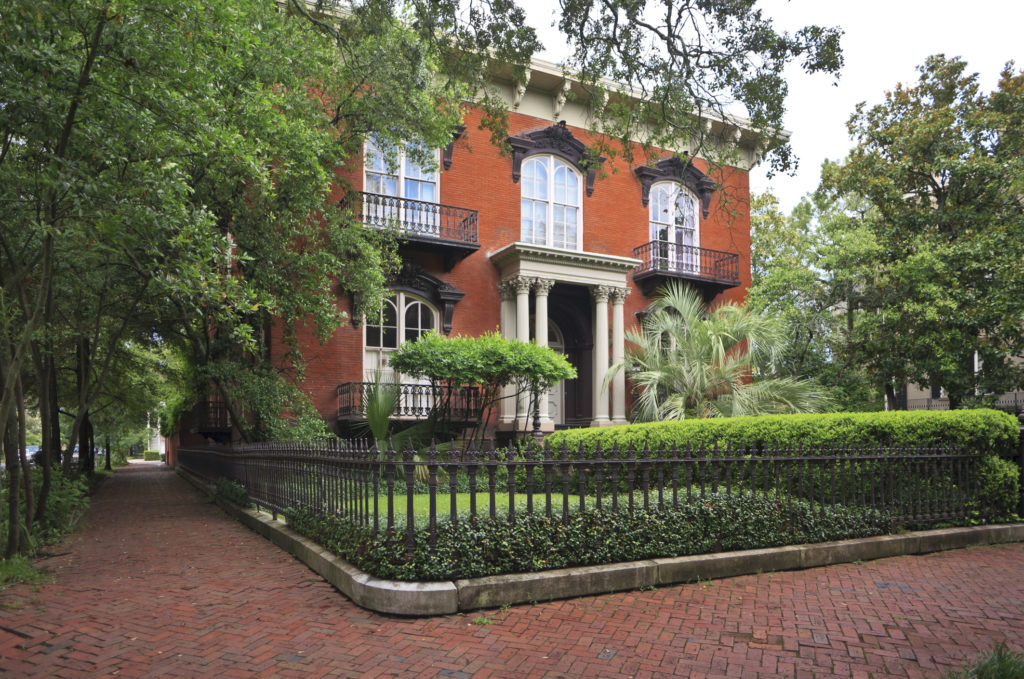Have you set your sights on an older home in a quaint historic district?
Victorian-era mansions with their intricate gingerbread molding and wrap-around porches are iconic architectural treasures. Stately Georgian colonials are alluring to those who appreciate symmetry and classic features such as columns, keystones, and fanlights. The beauty and unique structural details of historic homes hold matchless appeal for many buyers, but there are some important things to consider before purchasing one of these charming vintage properties.

Is Buying a Historic Home Right for You
There may be significant restrictions.
It’s common for towns to have zoning and planning commissions in place to preserve their historic neighborhoods. As a result, renovating and updating a historic home—particularly its exterior—will likely require additional approvals. You may not be able to remodel it to suit your preferences. Everything from paint colors to roofing materials and replacement windows can be subject to review, so that’s a serious consideration. Some historic districts also retain an immense amount of control, resulting in an extended planning, approval, and renovation process, as well as increased costs. Communities that are listed only on the National Register of Historic Places don’t have restrictions as to what restorations you can make to your home, but those on the state or local registry may impose their own regulations. If you’re planning to purchase and renovate a historic residence, it’s wise to consult with an architect and local officials in advance.
Older homes can come with major problems.
Getting a formal inspection is a good idea before making a commitment on any home, but it’s particularly important when you’re considering a vintage property. Find a qualified home inspector who specializes in historical residences. It’s common to find lead paint, asbestos and other harmful substances in homes built before 1978, so it’s important to ensure that the residence also meets current health and safety standards. When it comes to older homes, getting an assessment from a structural engineer can be invaluable. If you find that your dream house suffers from major structural problems, it’s best to walk away. The long-term headaches and expenses you’ll endure will far outweigh your emotional attachment to the property.
Maintaining an historic home can get pricey.
Historic residences last so long because they tend to be structurally sound and durable. The potential longevity also depends on what work has been done to it over the years and that quality of those restorations. But if the home needs extensive repairs, be advised that the costs can add up. Get estimates in advance from reliable contractors so you aren’t blind-sided by exorbitant repair or replacement costs. It may also cost significantly more to heat and cool an older home than a new one.
Your insurance may be expensive.
If you’re planning to buy a historic home, your insurance could skyrocket. Most standard personal insurance companies don’t offer the type of coverage you’ll need to insure your home, so expensive historic property insurance is often required. And if the vintage residence has structural issues such as an old roof or outdated electrical system, those insurance rates may be even higher.
You might be eligible for tax incentives.
Many states and local governments offer tax credits, grants and/or lower interest loans for preserving and restoring historic structures. You have to qualify for these incentives but you wouldn’t receive them if you were to buy a newer house. Homeowners in Maryland, for example, have the opportunity to earn a state income tax credit equal to 20 percent of qualified rehabilitation expenditures. The credit is capped at $50,000 in a 24-month period and a minimum of $5,000 of eligible expenses is required. These state homeowner tax credits may be used in conjunction with applicable local historic tax incentives.
They’re steeped in history.
In addition to its allure and quaint characteristics, each older home has its own interesting history. Dozens of homeowners have lived there over the years, all with their unique stories and experiences. By purchasing and maintaining a historic home, you’re helping to keep this rich past alive. If you’re a history buff, living in a vintage residence may be ideal for you.
There’s simply no match for the charm and character a home of historical significance has to offer.
Before you purchase your own piece of history, weighing the potential pros and cons is a smart way to go. Certified Title is here to offer helpful insights and valuable resources that enhance all types of real estate transactions. For more information about purchasing a historic property, please contact our knowledgeable professionals.
About Certified Title Corporation: Since 1994, attorney-owned Certified Title Corporation has been furnishing residential and commercial real estate stakeholders across the nation with robust title insurance, settlement, and escrow services. Renowned for their industry-leading reliability and exemplary level of service and quality, the Maryland-based company helps clients from all walks of life achieve their asset goals. To learn more, call (888)486-5511 or visit https://www.certifiedtitlecorp.com/.

